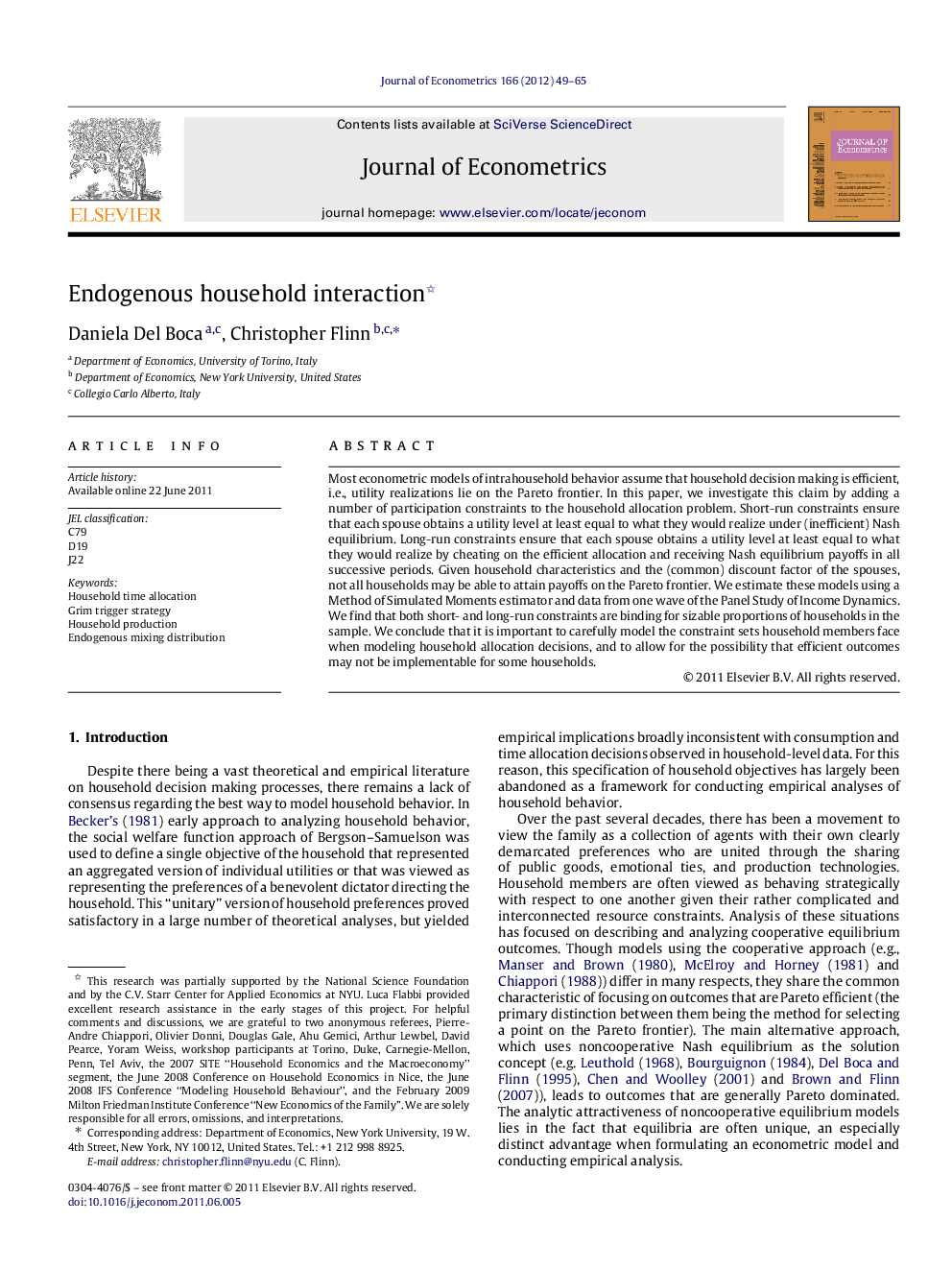| Article ID | Journal | Published Year | Pages | File Type |
|---|---|---|---|---|
| 5096568 | Journal of Econometrics | 2012 | 17 Pages |
Abstract
Most econometric models of intrahousehold behavior assume that household decision making is efficient, i.e., utility realizations lie on the Pareto frontier. In this paper, we investigate this claim by adding a number of participation constraints to the household allocation problem. Short-run constraints ensure that each spouse obtains a utility level at least equal to what they would realize under (inefficient) Nash equilibrium. Long-run constraints ensure that each spouse obtains a utility level at least equal to what they would realize by cheating on the efficient allocation and receiving Nash equilibrium payoffs in all successive periods. Given household characteristics and the (common) discount factor of the spouses, not all households may be able to attain payoffs on the Pareto frontier. We estimate these models using a Method of Simulated Moments estimator and data from one wave of the Panel Study of Income Dynamics. We find that both short- and long-run constraints are binding for sizable proportions of households in the sample. We conclude that it is important to carefully model the constraint sets household members face when modeling household allocation decisions, and to allow for the possibility that efficient outcomes may not be implementable for some households.
Keywords
Related Topics
Physical Sciences and Engineering
Mathematics
Statistics and Probability
Authors
Daniela Del Boca, Christopher Flinn,
